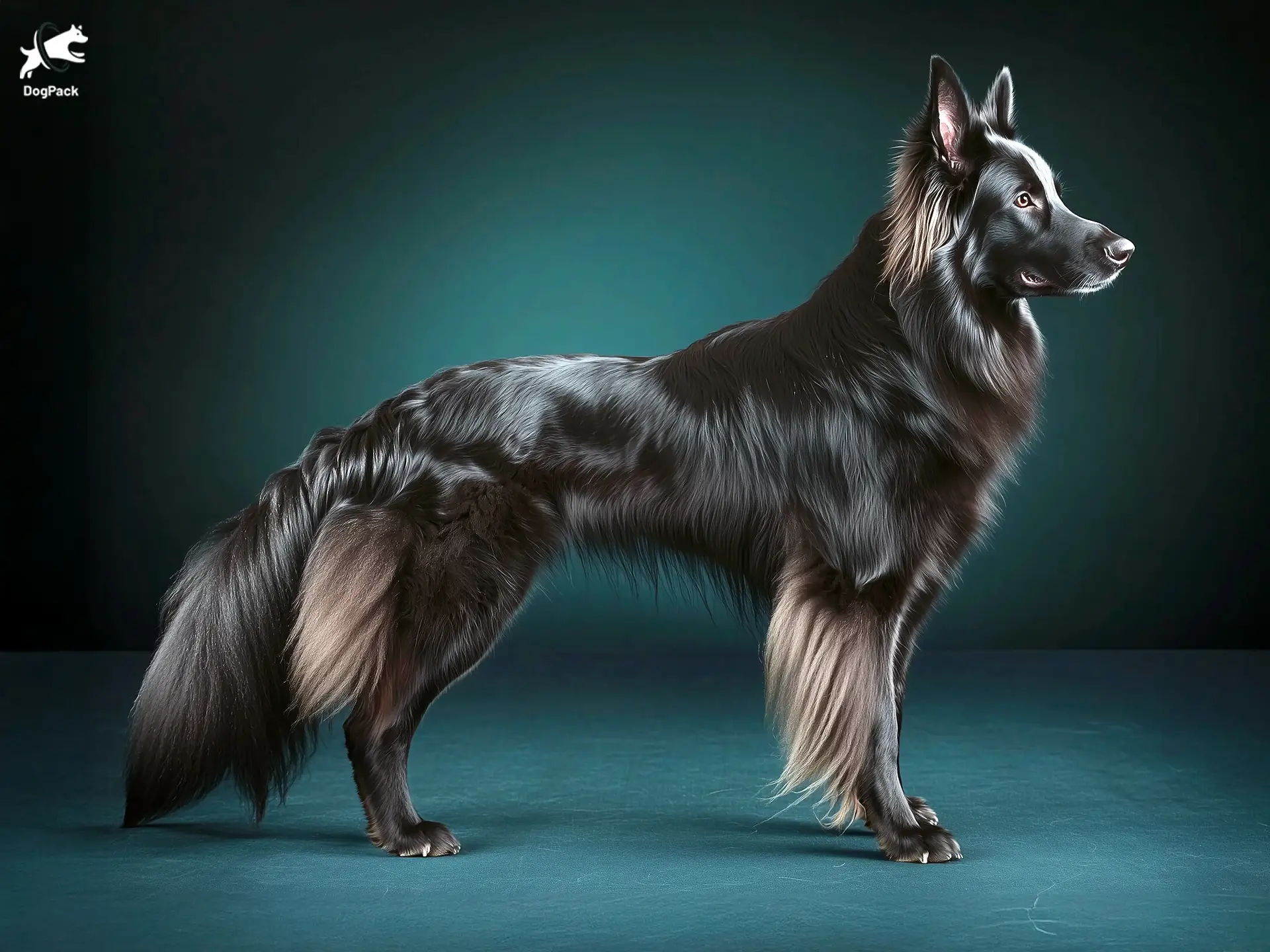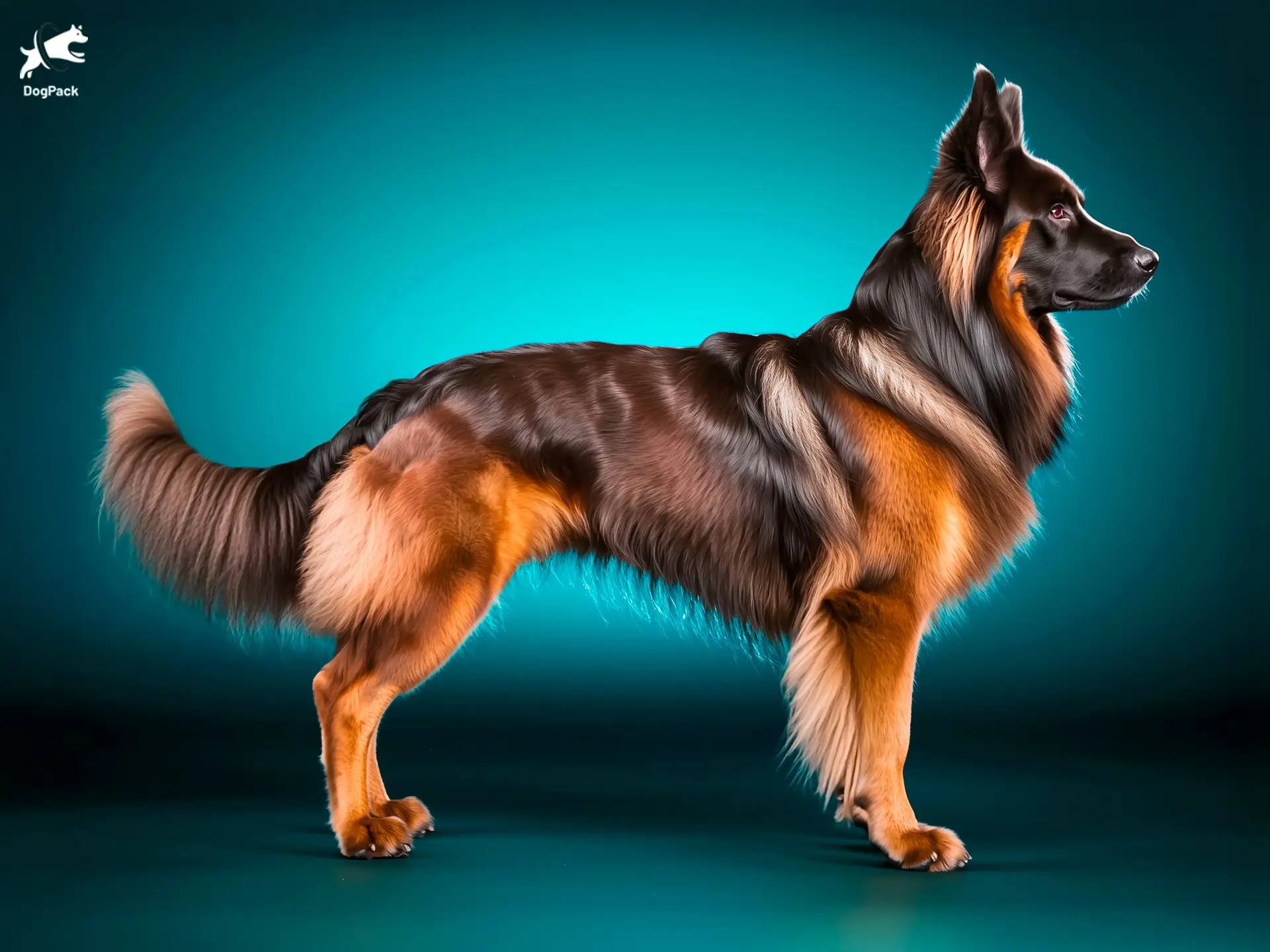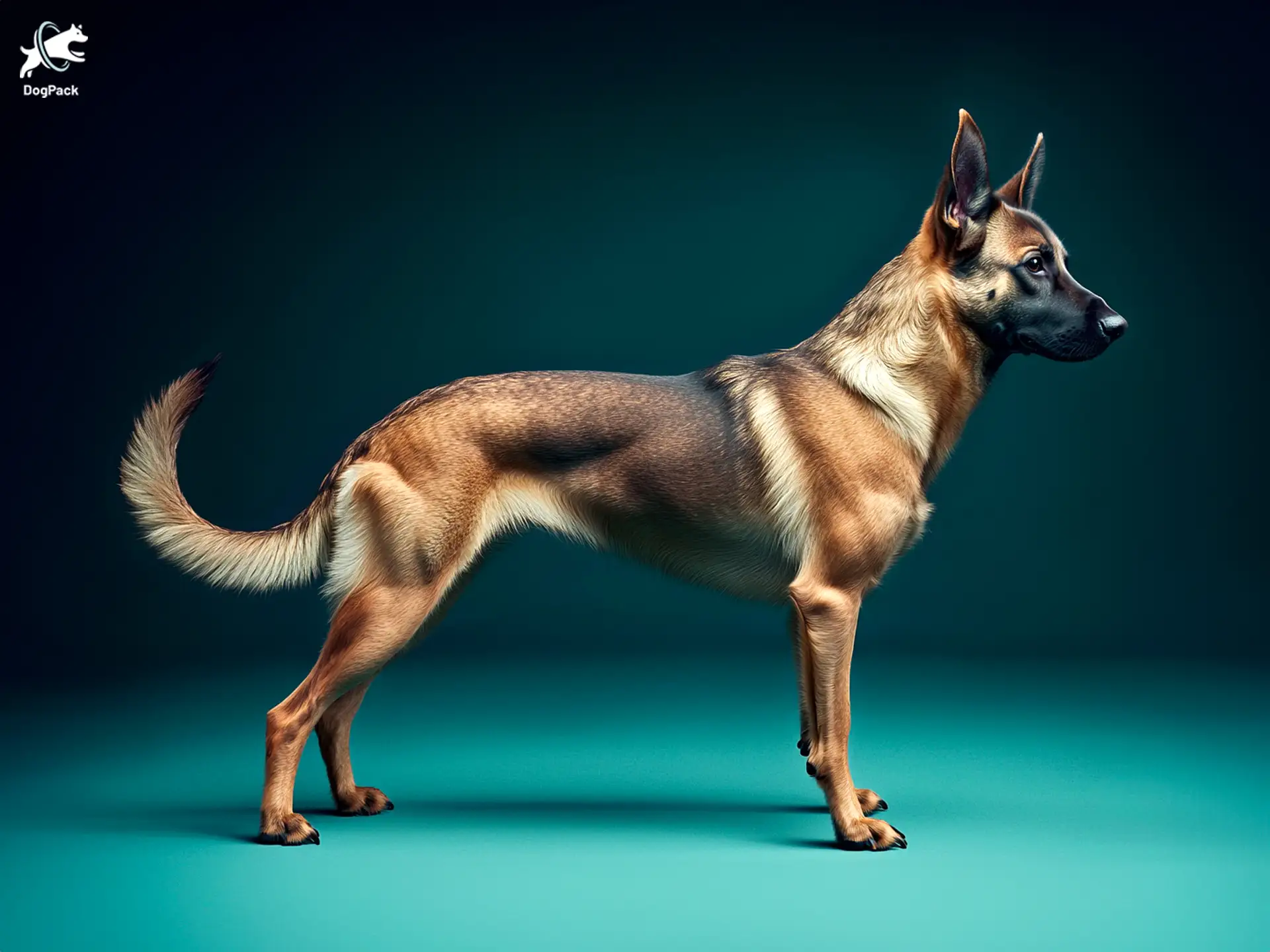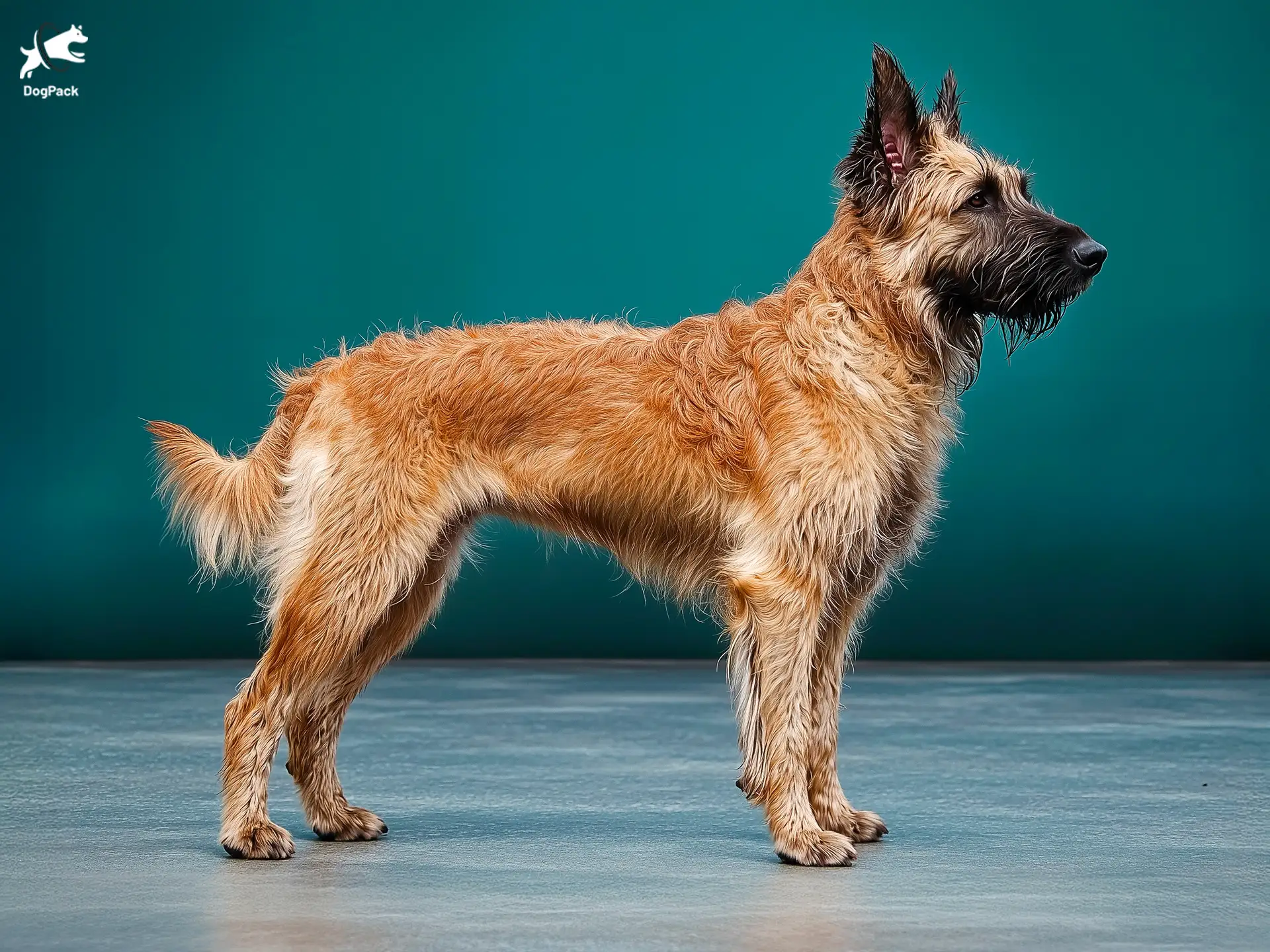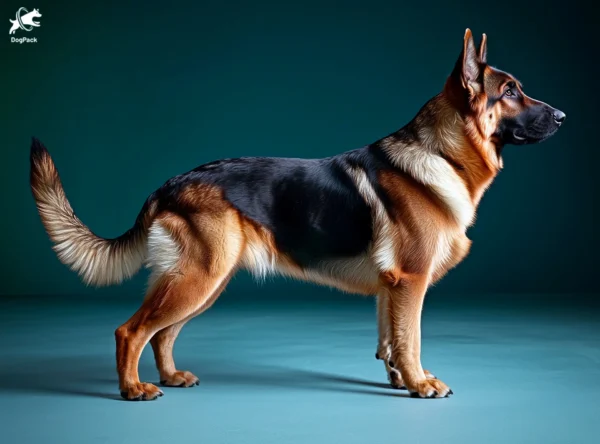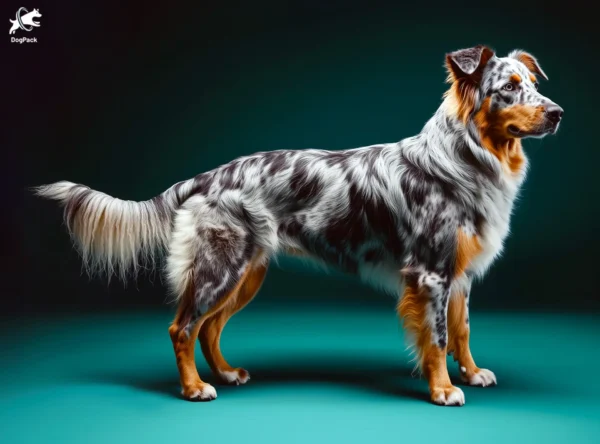Belgian Shepherd Dog Breed Info & Overview
Meet a highly intelligent and adaptable herding breed from Belgium, renowned for its sharp instincts and tireless work ethic. Internationally recognized under the umbrella term “Belgian Shepherd” (or “Belgian Sheepdog”), these dogs actually comprise four distinct varieties:
- Groenendael: Long black coat
- Tervuren: Long fawn or mahogany coat with black overlay
- Malinois: Short fawn coat with black mask
- Laekenois: Rough wire-haired fawn coat with some black shading
Although many kennel clubs, including the Fédération Cynologique Internationale (FCI), consider them varieties of one breed, some clubs (like the AKC) recognize them as separate breeds. Whichever naming convention you follow, the Belgian Shepherd excels in police work, search and rescue, sports, and active family homes that can satisfy its high energy needs.
Characteristics
Pictures
Breed History
Ever wondered how a sleek and nimble herding dog gained worldwide fame? The Belgian Shepherd’s story began in the lush fields of Belgium, where farmers needed a sharp-eyed companion to protect livestock. Over time, they refined and standardized a dog that balanced power with grace, ultimately producing four distinct coat varieties that remain inseparable under one breed banner.
The roots of this breed trace back to the late 1800s, when enthusiasts like Professor Adolphe Reul documented local herding dogs. Each variety—Groenendael, Tervuren, Malinois, and Laekenois—came from slight differences in coat type and regional preferences. Despite outward contrasts, they shared unwavering loyalty and a fierce work ethic, sealing their reputation as top-notch herders and guardians in Belgian communities.
As they ventured beyond Belgium, these dogs took up roles in police work, search and rescue, and even sports competitions. The Belgian Shepherd thrived on tasks demanding brains and brawn. Today, some kennel clubs classify them as separate breeds, while others keep them under one umbrella. Regardless, their rich heritage remains consistent: a dedicated helper shaped by centuries of pastoral life.
Temperament, Personality
Picture a curious, watchful companion who’s always on alert—these dogs thrive on keeping tabs on their surroundings. Whether it’s a suspicious squirrel in the yard or a visitor at the door, they spring into action, ready to guard or greet as needed. Early socialization can help them strike the perfect balance between protective watchdog and friendly neighborhood playmate.
Around family, they’re famously devoted, often forming strong attachments to their favorite humans. That fierce loyalty makes them excellent protectors. Be prepared for a shadow, though—their desire for closeness can sometimes feel downright clingy. If you’re craving a dog that will happily sit by your side and keep an eye on you, the Belgian Shepherd fits the bill.
They have a keen sense for children’s energy, but given their drive, supervision is vital. They can be mouthy or herding-prone, occasionally nudging kids to steer them around the house like a flock of sheep! When properly introduced, they typically get along with other pets. Yet, if left untrained, their vigilance might escalate into undue suspicion or overprotection.
Physical Characteristics
At first glance, you’ll notice a proud posture, upright ears, and alert eyes. Lean muscle and a poised silhouette give them a sense of refined athleticism. Behind that graceful frame lies the heart of a true worker, capable of darting across fields or leaping hurdles in a single bound. Each variety sports its unique coat, but the underlying build is uniformly robust.
From the stunning black fur of the Groenendael to the rough-wire coat of the Laekenois, these dogs serve up options for every aesthetic preference. Despite coat differences, they’re typically medium to large in size, with the Malinois variety often appearing slightly more slender. A tapered muzzle and black-rimmed eyes add that signature “focused on everything” expression so many fans adore.
You’ll also notice a hint of elegance in their movement—smooth strides and a springy gait that reflect centuries of herding tasks. They need that agility to pivot at a moment’s notice, whether guiding sheep or chasing Frisbees. Above all, the Belgian Shepherd stands out for its striking profile: an ideal marriage of form and function, wrapped in a variety of coat types.
Health Issues
While these dogs generally enjoy robust health, some lines can be prone to hip and elbow dysplasia. It’s often tied to their high activity levels and genetics, so regular checkups and responsible breeding are essential. Many owners also keep an eye on potential eye conditions, especially in the Tervuren and Groenendael varieties, where issues like progressive retinal atrophy can appear.
Epilepsy has been documented in certain bloodlines, making thorough research into a puppy’s pedigree important. Beyond that, Belgian Shepherds sometimes struggle with skin sensitivities. If you spot persistent itching or redness, a vet visit and possible diet adjustments could help. The best approach? Prevention. Invest in frequent vet screenings, and do your homework on a breeder’s health-testing protocols.
Don’t overlook routine care like dental hygiene and weight management. These active canines can easily overindulge, especially when they see you with tasty training treats. Keeping them lean reduces stress on joints and wards off related ailments. Ultimately, with the right preventative steps and mindful observation, most Belgian Shepherds lead long, vibrant lives as energetic companions.
Grooming Needs
Imagine tumbleweeds of fur rolling across your floor—that’s a real possibility, especially for the long-haired Groenendael or Tervuren. Weekly brushing is non-negotiable, and during seasonal shedding, you might be at it every other day. It’s worth it, though, to keep that splendid coat in good shape and minimize shedding surprises on your favorite couch.
If you opt for a Malinois, rejoice: the short coat is far simpler to manage. Meanwhile, the Laekenois might need a touch of expert grooming to maintain that trademark rough-wire texture. Occasional baths help keep odors at bay, but too many can strip natural oils. A quick brush or comb most days does wonders for their overall coat health.
Don’t forget the nails—long nails can cause discomfort or even posture issues. Check and trim them monthly, especially if your Shepherd doesn’t naturally wear them down on hard surfaces. Regular ear checks are a must, too, as debris can get trapped, leading to infections. With consistent, gentle grooming, you’ll keep your Belgian Shepherd looking fresh and feeling comfortable year-round.
Exercise Requirements
If you’re seeking a jogging buddy who never tires, you’re in luck. These dogs thrive on daily action—think running, hiking, or advanced dog sports like Schutzhund. Merely strolling around the block won’t satisfy that mental and physical drive. A bored Shepherd might resort to chewing, digging, or creative home redecoration (courtesy of their powerful jaws).
A safe, spacious yard can be a dream come true for them, but don’t assume that alone solves everything. They want structured play, puzzle games, and a real job to do. Short sprints chasing a ball or competing in agility are fantastic. Interactive toys—like treat-dispensing puzzles—channel their keen intelligence, burning energy while keeping them mentally sharp.
Try rotating activities to ward off boredom. One day, set up a mini obstacle course; the next, a long forest hike. You could even toss in herding-like games if you have access to a safe area with livestock. Remember, a well-exercised Belgian Shepherd is a joyful, well-behaved companion—one that’s far less likely to cause chaos around the house.
Training Tips
These dogs have a thriving mind that loves a challenge. Positive reinforcement works wonders, especially if you mix treats with hearty praise and toys. Patience is key—while they learn fast, they also pick up on tension or frustration. Keep sessions lively and upbeat, and you’ll have a whiz at obedience tasks and advanced tricks.
Socialization should start from puppyhood: introduce them to friendly neighbors, new sights, and varied environments. This helps prevent over-guarding tendencies. Striking a balance between firm direction and gentle encouragement keeps them confident without becoming stubborn. If you can weave in humor and fun, they’ll be even more eager to show off those newly mastered commands.
It’s tempting to push them too quickly in demanding sports, but remember to go step by step. Early success builds a can-do attitude that supports advanced work, whether that’s search and rescue training or agility. For owners feeling uncertain, group classes or professional trainers can help you harness the Belgian Shepherd’s natural abilities without overwhelming either of you.
Nutrition, Diet
Feeding a hard-working Belgian Shepherd requires a thoughtful approach. Active adults weighing around 60 pounds may need 1,200–1,500 calories daily, split into two meals. Opt for high-protein kibbles or carefully balanced raw diets that feature lean meats and moderate fats. Supplements like fish oil can enhance coat health, especially for those with heavier fur or dryness issues.
Puppies might benefit from specialized large-breed puppy formulas that support steady, controlled growth. A nutritional balance prevents undue stress on developing joints, reducing the risk of hip dysplasia later in life. Watch for calorie-dense treats—they can sneak up fast! Focus on reward-based training with smaller, protein-rich treats that won’t tip the scale or compromise overall meal balance.
Working or sport-oriented Belgian Shepherds often do well with slightly increased protein ratios, particularly if they’re burning calories in demanding tasks. However, monitor their weight closely; free feeding can lead to overindulgence. Always ensure fresh water is available, especially after intense exercise or training sessions. When in doubt, consult a reputable vet or canine nutritionist familiar with shepherding breeds.
Adoption, Breeders
When seeking to adopt or purchase a Belgian Shepherd, connecting with reputable breed-specific organizations is essential. The Belgian Sheepdog Club of America offers resources for finding responsible breeders and information on the breed’s characteristics. For those interested in the Belgian Tervuren variety, the American Belgian Tervuren Clubprovides breeder directories and rescue information. Additionally, the American Belgian Malinois Club is dedicated to the Malinois variety, offering guidance on breeders and breed-specific events.
For adoption opportunities, the American Belgian Malinois Rescue specializes in rescuing and rehoming Belgian Malinois in need. Similarly, the Belgian Tervuren Rescue, Inc. focuses on rescuing Belgian Tervurens, providing foster care, and facilitating adoptions. Engaging with these organizations can lead to finding a well-matched companion while supporting ethical breeding and rescue practices.
Connecting with online communities, such as the German Shepherd, Belgian Malinois, & Herding Dog Rescue Network on Facebook, can also provide valuable insights and support from experienced owners and rescuers. These platforms offer advice, share experiences, and may alert you to available dogs in need of homes.
Family Pet?
Looking for a lively companion that can keep pace with playful children? This breed’s energetic spirit and protective instincts can be a dream team in the right household. They often become gentle overseers, standing guard over kids in the yard. Yet, that natural alertness might intensify if children’s friends come and go without clear introductions.
When introduced responsibly, they can coexist nicely with other pets. They typically enjoy engaging in friendly chases with a well-socialized cat or dog sibling. Just be cautious of herding habits—some might try to corral the family cat! Clear boundaries and early training minimize friction, ensuring everyone shares space peacefully.
Structured routines help them feel included, whether that’s a daily walk with the kids or interactive puzzle games in the living room. Families that relish outdoor adventures are the best matches. With consistent guidance, a Belgian Shepherd can channel its protective energy into unwavering devotion, making it a steadfast companion in a bustling household.
Right For You?
If you’re an outdoor enthusiast or someone who loves the thrill of a challenging training schedule, this breed might be your soul mate. On the flip side, couch potatoes or infrequent travelers could struggle to meet its demands. Daily mental stimulation is as crucial as exercise, so be prepared for an active routine—rain or shine.
Apartment living isn’t impossible, but it’s tricky unless you’re committed to multiple daily outings. A secure yard helps, but you’ll still need consistent engagement, from throwing frisbees to practicing new commands. Think of them like an athletic roommate who’s always up for a marathon. Neglect that drive, and you risk pent-up energy turning into destructive habits.
Ultimately, if you crave a brainy partner to tackle complex tasks—whether it’s advanced obedience, agility, or simply exploring new hiking trails—this breed delivers. Individuals who can’t dedicate the time for rigorous training and exercise may find it overwhelming. For the devoted, however, the Belgian Shepherd is an incredible blend of loyalty, brains, and unwavering companionship.
Conclusion
A Belgian Shepherd isn’t just a pretty face with four distinct coat styles; it’s a dynamic, intelligent guardian longing for meaningful engagement. If you’re prepared to exercise both body and mind—and keep a few lint rollers handy—this breed can be an outstanding addition to your household. Long story short, they excel with the right people, blossoming into watchdogs, herders, and loyal friends wrapped into one four-legged package.
FAQs
-
What are the key differences between the four types of Belgian Shepherds?
The Belgian Shepherd has four recognized varieties:
Groenendael – Solid black with a long coat.
Tervuren – Similar to the Groenendael but with a fawn or mahogany coat.
Malinois – Short-haired with a fawn coat and black mask.
Laekenois – Rare, wiry-coated with a fawn, rough-textured coat. -
Are Belgian Shepherds more protective than German Shepherds?
Belgian Shepherds tend to be more agile and intense in their protective instincts than German Shepherds. They have a higher prey drive and sharper reflexes, making them ideal for police and military work. However, their guarding nature requires early socialization.
-
Can Belgian Shepherds handle cold and hot weather?
Yes! The double coat of the Belgian Shepherd provides insulation in winter and sheds to adjust to summer heat. However, they should have shade and hydration in hot climates and may need protection in extreme cold if outdoors for long periods.
-
Do Belgian Shepherds bond closely with one person?
Yes, Belgian Shepherds are highly loyal and tend to form a strong bond with one primary handler. While they can be affectionate with the whole family, they often develop a deep attachment to their main trainer or owner.
-
Why are Belgian Shepherds preferred for police and military work?
Belgian Shepherds, especially Malinois, are chosen for military and K9 units because they are lighter, faster, and have higher endurance than German Shepherds. Their intelligence, drive, and fearlessness make them elite working dogs in demanding environments.
Breed Ratings
The Belgian Shepherd is exceptionally bright, excelling in complex tasks and advanced training.
They enjoy fun games but often prefer structured activities that test their wits and stamina.
Expect daily exercise, from long runs to dog sports, to keep them truly content.
Long-haired types shed heavily, while short-haired varieties are somewhat more manageable.
They may chase smaller animals, but early socialization helps curb unwanted pursuits.
Frequent brushing—especially for longer coats—can be time-consuming, though routine grooming keeps them in top shape.
They learn rapidly and respond best to positive, consistent methods.
Extended isolation can lead to anxiety; they thrive with companionship and engagement.
They’ll alert you to suspicious activity, but with proper training, barking remains controlled.
Generally minimal drool; any slobber typically follows intense exercise or excitement.
Potentially good with other dogs if introduced early, but can display territorial tendencies.
Usually robust, though screening for hips, elbows, and eyes is vital for longevity.

